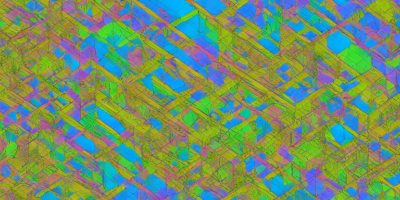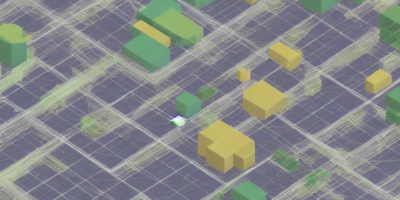Imagine you’re trying to reconstruct a 3D image of an object from a bunch of scattered data points. Sounds familiar? Well, it’s actually a common problem in various fields like computer science, engineering, and medicine! In this article, we’ll dive into the world of iterative algorithms and their applications in overdetermined systems. Buckle up, as we explore complex concepts in an accessible way!
Section 1: Background and Context
Iterative methods are like Lego blocks that help us build a solution to a problem. They start with an initial guess and gradually improve the estimate using information from previous iterations. In overdetermined systems, there’s more data than necessary to solve the problem, making iterative methods particularly useful. However, these methods can be computationally expensive, so we need to find the right balance between accuracy and efficiency.
Section 2: Historical Background and Key Concepts
Iterative algorithms have been around for decades, with roots in linear algebra and matrix theory. Key concepts like convergence, rate of convergence, and preconditioning are crucial to understanding their performance. Preconditioners help improve the convergence of iterative methods by altering the matrix before solving it. In overdetermined systems, we often use diagonal preconditioners or least squares diagonal preconditioners to speed up the process.
Section 3: Reconstruction Algorithms in CT Imaging
Now, let’s focus on the context of CT imaging! In this field, iterative algorithms are used to reconstruct 3D images from scattered data points. The goal is to reduce noise and enhance image quality while minimizing computational resources. Popular reconstruction algorithms like Algebraic Iterative Reconstruction (AIR) and the Least Squares Conjugate Gradient method have been around for decades, with recent advancements in software libraries like Eigen. These tools help streamline the process and provide more accurate results.
Section 4: Challenges and Future Directions
Despite their advantages, iterative algorithms face challenges in overdetermined systems. One of these challenges is choosing the right preconditioner, which can significantly impact convergence rates. Additionally, there’s a need for better understanding of the underlying mathematics to improve the accuracy and efficiency of iterative methods. Future research could explore new optimization techniques or hybrid approaches combining different methods to achieve better results.
Conclusion
Iterative algorithms are powerful tools in overdetermined systems, offering improved accuracy and reduced computational burden. By understanding their historical background, key concepts, and applications in CT imaging, we can harness their full potential! As research continues to uncover new optimization techniques and hybrid approaches, iterative methods will remain crucial in various fields. So, the next time you encounter a complex problem, remember that Lego blocks of iterative algorithms might hold the solution!



